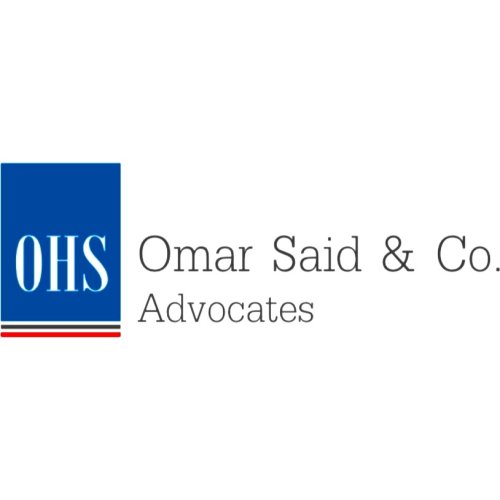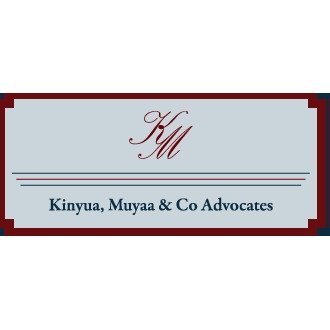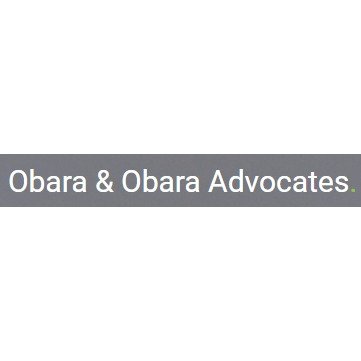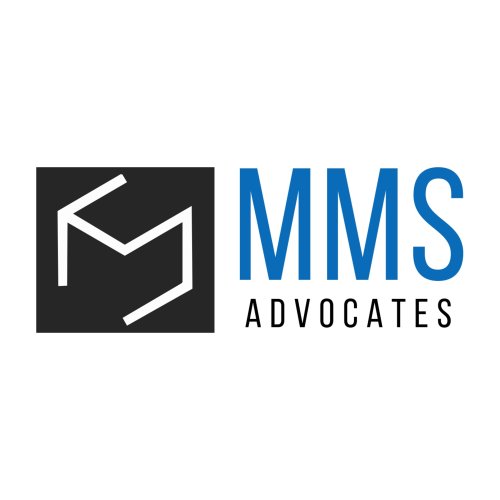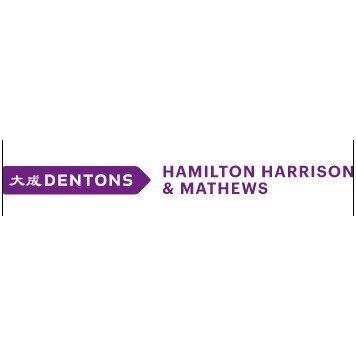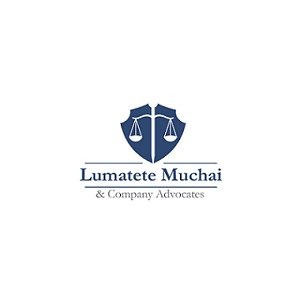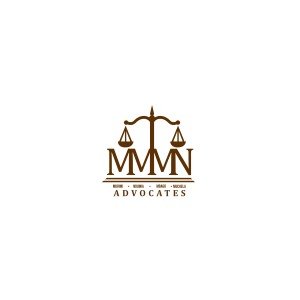Best FDA Law Lawyers in Mombasa
Share your needs with us, get contacted by law firms.
Free. Takes 2 min.
List of the best lawyers in Mombasa, Kenya
Legal guides written by Adroit Law LLP:
- Kenya Launches Digital Nomad Visa: A Gateway for Remote Workers
- Navigating the Payment System License Maze in Kenya
- Navigating the Complexities of Mining Licenses and Permits in Kenya: A Look into Artisanal and Large-Scale Operations
About FDA Law in Mombasa, Kenya
FDA Law in the Kenyan context refers to the legal framework governing the regulation of food, drugs, medical devices, and cosmetics. In Kenya, the Pharmacy and Poisons Board (PPB) and the Kenya Bureau of Standards (KEBS) are the leading agencies that oversee matters often related to what is commonly known in many countries as "FDA Law". While Kenya does not have a single "Food and Drug Administration" as in the United States, these agencies handle similar responsibilities. Mombasa, being a major port and commercial center, sees a significant amount of imported and exported goods regulated under these laws.
This legal field covers the approval, importation, manufacture, distribution, advertising, and sale of food, pharmaceutical, and cosmetic products. Compliance requirements are rigorous and are designed to ensure public health and safety. Professionals and businesses in Mombasa must adhere to both national and county-level regulations.
Why You May Need a Lawyer
Engaging a lawyer with expertise in FDA Law in Mombasa, Kenya, can be essential in several scenarios. Here are some common situations:
- If you are starting a business that manufactures, imports, or distributes foods, drugs, cosmetics, or medical devices, a lawyer can advise you on the necessary compliance steps.
- If your product has been seized by authorities at the port or market due to alleged regulatory non-compliance.
- If you are facing criminal or civil charges related to adulteration, misbranding, or illegal promotion of regulated products.
- If you have been served with a recall or safety alert notification for your products.
- When applying for authorization, licensing, or registration of products or premises with the PPB, KEBS, or the Mombasa County Department of Public Health.
- If you are involved in a dispute regarding patents or trademarks for pharmaceuticals or medical devices.
- If you seek to challenge administrative decisions or wish to appeal a regulatory penalty.
Legal professionals help interpret complex statutes, ensure thoroughness in documentation, and represent clients in negotiations and proceedings before regulatory agencies or courts.
Local Laws Overview
Several local laws and regulations affect the handling of food and drugs in Mombasa:
- The Pharmacy and Poisons Act (Cap 244) - Establishes the Pharmacy and Poisons Board and governs the manufacture, sale, and control of medicines and poisons.
- The Food, Drugs and Chemical Substances Act (Cap 254) - Oversees the safety and quality of foods, drugs, and chemical substances.
- Public Health Act (Cap 242) - Provides broader guidelines on public health, including food hygiene and safety.
- Standards Act (Cap 496) - KEBs sets and enforces standards for different products, including foods and drugs.
- Mombasa County Public Health and Sanitation Regulations - Additional rules and licensing permits required at the county level.
- Consumer Protection Act - Offers protections for consumers against substandard or dangerous goods.
Compliance with these laws is critical not just for legal operation, but also for safeguarding public health and avoiding harsh penalties such as product recalls, fines, or imprisonment.
Frequently Asked Questions
What is FDA Law and who enforces it in Kenya?
In Kenya, FDA Law refers to the regulations overseeing the production, import, marketing, and sale of food, drugs, and cosmetics. The primary enforcement bodies are the Pharmacy and Poisons Board and the Kenya Bureau of Standards.
Do I need a license to import or sell food or drugs in Mombasa?
Yes, businesses must obtain relevant licenses and product registrations from authorities such as the Pharmacy and Poisons Board for drugs, and KEBS for foods and other products before importation or sale.
What penalties can I face for non-compliance?
Penalties for non-compliance can include hefty fines, product seizures, cancellation of licenses, business closure, and even criminal prosecution leading to imprisonment.
Are imported foods and medicines subject to special regulations?
Yes, imported foods and medicines must meet Kenya's safety and quality standards and are subject to inspection at the port of entry. Food handlers and wholesalers require additional certification.
Can I challenge a regulatory penalty or product recall?
Yes, there is a legal process for challenging regulatory actions, including penalties and recalls. A qualified lawyer can guide you through appeals or judicial reviews.
How long does it take to get approvals for my pharmaceutical products?
Approval times vary based on the type of product and completeness of submissions. On average, it may take weeks to several months, depending on whether the product is generic, branded, or novel.
Is it necessary to have local representation for foreign manufacturers?
Yes, foreign companies usually must appoint a local agent or representative who is registered with regulatory bodies in Kenya.
Are herbal and alternative medicines regulated in Mombasa?
Yes, herbal and alternative medicines are regulated under the Pharmacy and Poisons Act and related guidelines. They must be registered and subjected to safety assessments.
Can I advertise my food or drug product freely?
Advertising regulated products is subject to strict guidelines from the Pharmacy and Poisons Board and KEBS. Misleading or false claims are prohibited and can attract penalties.
What should I do if my goods are detained at the port?
You should consult a lawyer promptly and seek clarification from the regulatory authority. Address any documentation or compliance gaps quickly to avoid escalation.
Additional Resources
For more information or assistance relating to FDA Law in Mombasa, you can reach out to the following organizations and bodies:
- Pharmacy and Poisons Board (PPB)
- Kenya Bureau of Standards (KEBS)
- Ministry of Health, Kenya
- Mombasa County Department of Public Health
- Kenya Association of Pharmaceutical Industry
- Law Society of Kenya - Mombasa Chapter
- Kenya National Chamber of Commerce and Industry
These bodies can provide guidance on regulatory requirements, licensing, standards, and other compliance issues.
Next Steps
If you find yourself in need of legal advice or representation regarding FDA Law in Mombasa, Kenya, consider taking the following steps:
- Gather relevant documents and records related to your legal concern, such as licenses, permits, communications with regulators, or product samples.
- Schedule a consultation with a lawyer who has experience in FDA Law and understands local and national regulations.
- Clearly explain your situation and goals to your lawyer. Be honest and thorough in your disclosure.
- Follow your lawyer's advice on next steps, whether it involves compliance measures, legal appeals, or representation before regulatory inspections or hearings.
- If you are a business, consider developing ongoing legal compliance strategies to avoid future issues with food and drug laws.
Timely legal consultation can prevent costly mistakes, reduce business risks, and protect your rights in regulatory proceedings.
Lawzana helps you find the best lawyers and law firms in Mombasa through a curated and pre-screened list of qualified legal professionals. Our platform offers rankings and detailed profiles of attorneys and law firms, allowing you to compare based on practice areas, including FDA Law, experience, and client feedback.
Each profile includes a description of the firm's areas of practice, client reviews, team members and partners, year of establishment, spoken languages, office locations, contact information, social media presence, and any published articles or resources. Most firms on our platform speak English and are experienced in both local and international legal matters.
Get a quote from top-rated law firms in Mombasa, Kenya — quickly, securely, and without unnecessary hassle.
Disclaimer:
The information provided on this page is for general informational purposes only and does not constitute legal advice. While we strive to ensure the accuracy and relevance of the content, legal information may change over time, and interpretations of the law can vary. You should always consult with a qualified legal professional for advice specific to your situation.
We disclaim all liability for actions taken or not taken based on the content of this page. If you believe any information is incorrect or outdated, please contact us, and we will review and update it where appropriate.





